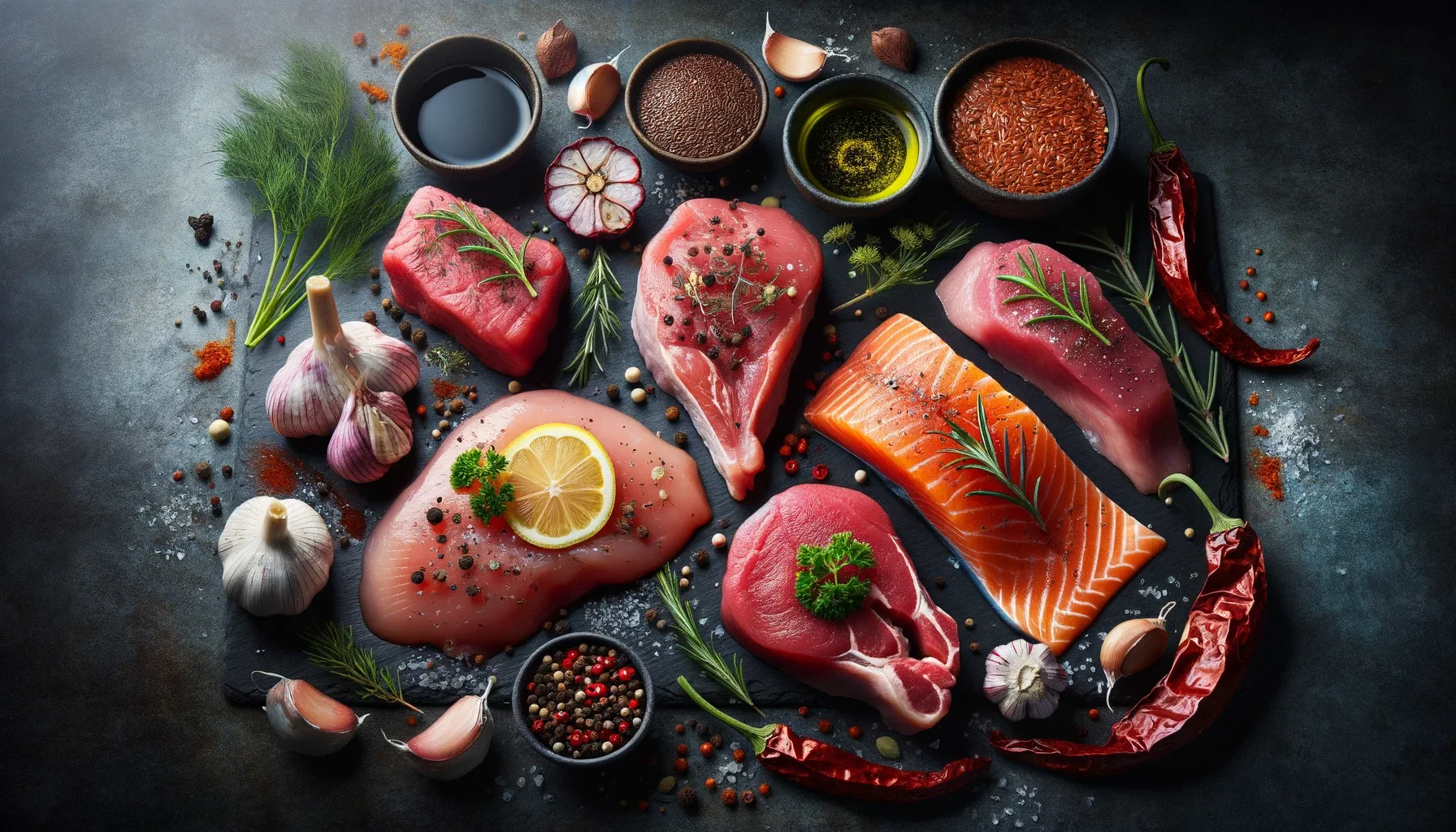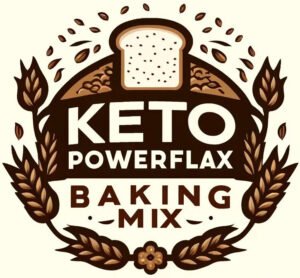The Best Appetite Suppressant: High-Protein Foods
Recent studies have unearthed compelling evidence suggesting that the best appetite suppressant may not come from a bottle but from the very foods we choose to consume. Specifically, a high-protein diet and the avoidance of ultra-processed foods emerge as critical factors in appetite suppression and the prevention of overeating.
This blog post delves into the scientific findings that support these dietary choices as powerful tools against obesity. Read on!
Overview: A New Perspective on Dietary Influence
The increasing rates of obesity, particularly in Western societies, have prompted a closer examination of dietary patterns. Research underscores a critical link between the scarcity of protein in highly processed foods and the subsequent rise in overeating and weight gain. It appears our bodies have a strong preference for protein—a preference that is not satisfied by the modern, ultra-processed diet, leading to an increase in overall calorie consumption.
Key Findings from Recent Studies
Protein Demand and Obesity: Insights from the University of Sydney
A groundbreaking study led by Professor Raubenheimer at the University of Sydney reveals that ultra-processed foods, which are often deficient in protein, could be prompting us to eat more. This increase in food intake is largely an involuntary response by the body to compensate for the protein deficit. These findings offer a mechanistic explanation for obesity, highlighting how low-protein diets lead to a compensatory increase in total caloric intake.
These findings offer a mechanistic explanation for obesity, highlighting how low-protein diets lead to a compensatory increase in total caloric intake.
The Impact of Ultra-Processed Foods on Our Diet
Research supports the idea that the American diet, with its high consumption of ultra-processed foods, is flawed. These foods not only lack essential nutrients like protein but also contain higher levels of calories, sugars, and unhealthy fats. This shift in diet has been directly linked to rising obesity rates, as these nutrient-poor foods fail to meet dietary needs but significantly increase caloric intake.

Global Implications and Health Outcomes
The scope of Professor Raubenheimer’s research is vast, encompassing dietary studies in diverse environments from the Congo to the Himalayas. His findings suggest that understanding protein’s role in the diet could revolutionize our approach to chronic diseases such as obesity, diabetes, and cardiovascular disease. Addressing the protein leverage phenomenon could markedly improve global health outcomes.
Protein’s role in the diet could revolutionize our approach to chronic diseases such as obesity, diabetes, and cardiovascular disease. Addressing the protein leverage phenomenon could markedly improve global health outcomes.
What Are Highly-Processed Foods?
Highly-processed foods are products that have been significantly altered from their original form through the use of industrial processing and various chemical additives. These often include ready-to-eat or heat meals, snack foods, sugary beverages, and reconstituted meat products. The primary goal of such processing is to enhance flavor, texture, and shelf life, making these foods more convenient and appealing to consumers.

Dangerous Chemicals in Highly-Processed Foods
While the use of chemicals can make foods more appealing and longer-lasting, certain processing methods can lead to the formation of harmful compounds:
- Heterocyclic Amines: These carcinogenic chemicals are formed when meat is cooked at high temperatures.
- Acrylamide: A carcinogen that results from the reaction between sugars and amino acids when food is cooked at high temperatures, such as during frying or baking.
- Benzene: This compound can form in processed beverages from the reaction of benzoate salts with ascorbic acid under heat or light.
- Chloropropanols: These are formed from the reaction of glycerol with chlorine under acidic conditions and are considered health risks.
- Ethanol: Typically produced during fermentation; while not usually toxic, it is relevant in discussions of food processing.
- Ethyl Carbamate (Urethane): Though not acutely toxic, it can cause nausea and vomiting in high doses and is considered potentially carcinogenic.
- Furan: Often found in canned and jarred foods that have been subjected to heat, posing potential health risks.
The use of these chemicals is necessary for achieving the desired qualities in highly-processed foods but certainly poses potential health risks!
Examples of Ultra-Processed Foods in Your Grocery Store
- pop and fruit drinks
- sweetened yogurt
- sweet or savoury packaged snacks (e.g., cookies)
- candies and cake mixes
- mass-produced packaged breads and buns
- margarines and spreads
- breakfast cereals
- cereal and energy bars
- energy drinks
- instant soups, sauces, and noodles
- poultry and fish nuggets, hot dogs
- many ready-to-heat products: pre-prepared pies, pasta, and pizza dishes
“Protein Leverage” The Role of Protein in Appetite Regulation
The concept of “protein leverage” is particularly enlightening. This theory posits that humans will continue to consume food until their body’s protein needs are met, regardless of the calorie content. In environments dominated by high-calorie, low-protein foods, this leads to increased overall calorie consumption and, consequently, weight gain.

Humans will continue to consume food until their body’s protein needs are met, regardless of the calorie content. In environments dominated by high-calorie, low-protein foods, this leads to increased overall calorie consumption and, consequently, weight gain.
Strategic Dietary Adjustments as the Best Appetite Suppressant
The evidence suggests that increasing protein intake and reducing the consumption of ultra-processed foods could be effective strategies to combat the obesity epidemic. Practical applications might include reformulating processed foods to boost their protein content or promoting dietary guidelines that favor protein-rich foods.
Rethinking Our Dietary Habits
The current research emphasizes the need to re-evaluate our dietary habits, particularly our intake of ultra-processed foods and protein-rich foods. By tuning into the body’s inherent demands for protein, we can significantly reduce overeating and help prevent obesity. This approach offers a clear path towards managing the global health crises linked to dietary excess.
While various factors contribute to weight gain, the compelling demand for protein and its scarcity in highly processed foods play a pivotal role in energy overconsumption and obesity in the Western world. Professor Raubenheimer’s insights not only offer an ecological and mechanistic explanation for obesity but also highlight the central role of protein as the best appetite suppressant, with profound implications for global health.
Understanding how protein dictates human nutrition has led researchers like Professor Raubenheimer to some of the most remote corners of the world. His revolutionary insights into the protein mechanism in appetite control suggest that tackling obesity, diabetes, and cardiovascular disease through diet is not only possible but imperative.
By leveraging these insights, we can bring these pervasive health issues under control, heralding a new era in dietary management and chronic disease prevention.
Revolutionizing Bakery Offerings: The Power of Keto PowerFlax Baking Mix
In a world increasingly driven by health-conscious choices, commercial bakeries face the challenge of adapting their product offerings to meet the evolving demands of consumers.
Recent studies underline the importance of high-protein, low-carbohydrate diets as the best appetite suppressant, significantly influencing consumer preferences. Keto PowerFlax Baking Mix emerges as a game-changer in this landscape, providing bakeries with a lucrative opportunity to innovate while catering to health-aware clientele.
The Health Benefits of Keto PowerFlax Baking Mix
Keto PowerFlax Baking Mix isn’t just a staple ingredient; it’s a health-enhancing, clean-label powerhouse that transforms traditional bakery products. With its plant-based composition, it meets the rising demand for sustainable, environmentally friendly food choices. Ideal for those following a ketogenic diet, this mix offers a low-carbohydrate alternative that doesn’t sacrifice taste or texture.
Rich in dietary fiber, Keto PowerFlax Baking Mix aids in digestion and prolongs feelings of fullness, effectively acting as a natural appetite suppressant. It is also packed with protein—essential for muscle repair and growth—and omega-3 fatty acids, which are beneficial for reducing inflammation and promoting heart health. Additionally, its Kosher certification and absence of artificial additives appeal to consumers seeking purity and quality in their food products.
Versatility and Innovation in Baking
Keto PowerFlax Baking Mix stands out for its versatility. Capable of creating everything from crunchy crackers to soft, sumptuous breads, cookies and cakes, it allows bakeries to expand their product lines with healthier, low-carb options that maintain delicious flavors and high-quality textures. This adaptability enables bakeries to innovate and diversify their offerings, aligning with current health trends without alienating customers accustomed to traditional tastes.

Strategic Business Advantages for Commercial Bakeries
Incorporating Keto PowerFlax Baking Mix into bakery products provides commercial bakeries with a significant competitive edge, enabling them to attract a broader customer base. For example, a healthy, low-carbohydrate 183g cinnamon bun made with PowerFlax contains an impressive 44g of plant-based protein. This not only appeals to health-conscious consumers but also those actively seeking out high-protein diets as a method for appetite control and weight management.
By offering such high-protein, low-carb bakery items, bakeries can not only increase their customer base but also enhance their sales and profit per unit. Customers are often willing to pay a premium for products that align with their dietary preferences and health goals, making these innovative bakery items both a healthful option and a profitable venture.
A healthy, low-carbohydrate 183g cinnamon bun made with PowerFlax contains an impressive 44g of plant-based protein. This not only appeals to health-conscious consumers but also those actively seeking out high-protein diets as a method for appetite control and weight management.
A Promising Future with Keto PowerFlax Baking Mix
The introduction of Keto PowerFlax Baking Mix into the commercial bakery sector offers a promising avenue for growth and innovation. As the best appetite suppressant, it meets the dietary needs of a diverse consumer base, from those seeking weight management solutions to those requiring nutrient-dense, high-protein diets. Bakeries that capitalize on this trend not only stand to gain financially but also contribute positively to the health and well-being of their customers, paving the way for a healthier future in the baking industry.

A Note to Commercial Bakeries
You can easily produce delicious keto-friendly products which are clean label, high protein and plant-based!
- Recipes provided on all bulk orders
- Ongoing customer support always available
- To order, visit our wholesale distributor, SnowCap Enterprises, and search: Powerflax Gold Low Carb Mix (SNC80).
- Worldwide shipping is available – contact laurie@powerflax.net
References
- Processed foods key to rising obesity. Science Daily
- Study confirms that processed foods key to rising obesity. The University of Sydney
- Ultra-Processed Foods and Health Outcomes: A Narrative Review. PubMed
- Ultra-processed Foods, Weight Gain, and Co-morbidity Risk. PubMed
- Consumption of ultra-processed foods associated with weight gain and obesity in adults: A multi-national cohort study. PubMed
- Ultra-Processed Food Consumption is Associated with Abdominal Obesity: A Prospective Cohort Study in Older Adults. PubMed
- Clinical Evidence and Mechanisms of High-Protein Diet-Induced Weight Loss. PubMed
- Protein, amino acids and obesity treatment. PubMed
- The Effects of Increased Protein Intake on Fullness: A Meta-Analysis. Journal of the Academy of Nutrition and Dietetics
- Mu-Opioid Receptors and Dietary Protein Stimulate a Gut-Brain Neural Circuitry Limiting Food Intake. Cell
- Everything in moderation? Focusing on ultra-processed foods. GI Society (Canadian Society of Intestinal Research)


